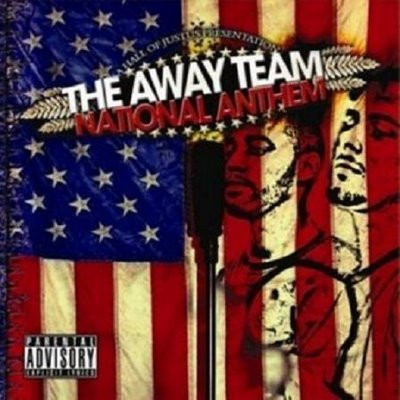As superproducer 9th Wonder goes, so do his Justus League crew. As of right now, 9th is possibly the hottest beatsmith on the planet, so of course the hype is high for the plethora of projects that keep coming out building up to Little Brother’s “The Minstrel Show.” There are an overwhelming number of albums in the works by Little Brother’s members and their affiliates, and their fanbase is constantly growing.
This branch of the Justus League family consists of Sean Boog and Khrysis, who is the musical foundation on which “National Anthem” is based on. Khrysis has already done his share of production work for others, and Sean Boog prepared himself for his work here on Foreign Exchange’s “Connected” as well as the Justus League Mixtape. The duo’s collaboration on “National Anthem” represents a slightly awkward union, especially when compared to a work like “Connected” that sounded like the labor of a group that was already very familiar with each other.
There are no real moments over the span of the eighteen tracks that truly sound inspired. Something is always wrong, and the culprits are numerous. Sean Boog never really exhibits superior rapping abilities, and since his voice is fairly commanding, it is difficult to pay attention to other aspects of the songs. Khrysis is an able producer, which comes out clearly on cuts such as “The Competition” and the lead single “Likka Hi (Last Call).” He continually strikes an odd balance between the more melodic and pleasing approach that 9th Wonder employs and edgier, more defined loops. “Fuck You” is markedly relaxing and a clear nod to the type of sound that the Justus League has typified in their short history. There are several songs like this, but on many of them Khrysis seems to be experimenting and the cause is frustration for the listener. This compromise results in a collection of beats that sometimes sound as pure as the work of the other Justus League producers, but is not nearly as pleasing because of various means he employs to distance himself from the crew without separating himself completely.
Some might think it unfair to judge “National Anthem” based on the previous successes from this camp, but the comparison is apt due to the fact that Khrysis clings to the same blueprint of laid-back, deceivingly simplistic production. The fact is, though, that this record does not play nearly as smoothly as the two seminal works “Connected” and “The Listening,” simply because the production is more disjointed from song to song and the rapping on the record is never terribly riveting. Sean Boog doesn’t appear to be having much fun, which has been essential in the past for such light-hearted music as this. He is not a gifted lyricist, so creating an interesting world with his words is a must, which he unfortunately avoids.
The hooks are another area in which the pleasant qualities that exist in the music are lessened. There are a couple of culprits, the worst being “The Blah Blah,” on which the hideous chorus ruins some very solid work by Khrysis on the boards. The hook lets all of the air out of the track, stalling it dead between verses. This is the ultimate problem with “National Anthem.” No matter how strong the material appears at first, a disappointing verse, a poor hook, or a beat that is too misshapen puts a damper on the whole song. There are a handful of songs that are devoid of these flaws, but even then, no chemistry seems to have developed between the two artists, and the result is some good music that is not particularly inspiring in any way.
The elements are in place, and if Sean Boog tightens up his lyrics and develops more of a focus, the next record should turn out better. Khrysis needs to either craft his own distinct style or stick to the Justus League script, because the blending of his own creativity with what is expected from a release like this ends up sounding a bit uncomfortable. A couple of guest shots (most notably Smif-N-Wesson, appearing directly after a song called “The Shining”) help a bit, but the most likely emotions this record will provoke are frustration and disappointment. A more complete effort could have been possible, but the final version of “National Anthem” is more difficult to enjoy straight through than it should have been.

